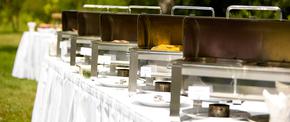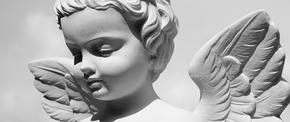The views expressed in our content reflect individual perspectives and do not represent the authoritative views of the Baha'i Faith.
Today the Baha’i Fast begins. When this time of year rolls around friends usually ask me “If I wanted to try the Baha’i fast, could I?” “Of course,” I always say. “You might really like it, in fact.”
The Baha’i Fast is simple, but not necessarily easy. Once each year, for 19 days, Baha’is around the world abstain from food and drink during the daylight hours.
RELATED: The Lifelong Health Benefits of Intermittent Fasting
But more than just facing the physical obstacle of enduring hunger and thirst during successive days, the Fast asks everyone who participates to confront something deeper and much more spiritually challenging in themselves – our attachment to the material world.
For this material fast is an outer token of the spiritual fast; it is a symbol of self-restraint, the withholding of oneself from all appetites of the self, taking on the characteristics of the spirit, being carried away by the breathings of heaven and catching fire from the love of God.
The Baha’i teachings say that the Baha’i Fast symbolizes detachment from the physical world, develops empathy for the poor and hungry, and engenders the growth of the soul.
All of the increasing scientific evidence about the health benefits of intermittent fasting helps explain why groups of people who fast regularly – Buddhists, Mormons, Baha’is – tend to live longer and healthier lives. But the Baha’i teachings emphasize the spiritual benefits of fasting, so Baha’is don’t fast only for dietary or health-related reasons.
In fact, the Baha’i Fast exists primarily for the benefits fasting confers on the human spirit. Fasting, then, becomes a period of spiritual recuperation, for refreshing and reinvigorating the soul. Baha’u’llah said:
… as the sun and moon constitute the brightest and most prominent luminaries in the heavens, similarly in the heaven of the religion of God two shining orbs have been ordained — fasting and prayer.
So if you want to fast along with the Baha’is this year, just refrain from food and drink during the daylight hours from March 2nd to March 20th.
Take the extra time you’d normally use for preparing and eating your daytime meals to nourish and refresh your spirit, with thoughtful meditation and prayer. Let your hunger compel you to consider the plight of those who have no food. Reflect on the spiritual realities, and look into your own soul. Temporarily detach from the needs of this temporary world and consider what you will need in the eternal one we will all one day inherit and inhabit.
Use your time fasting to think back on the entire year and ask yourself: what can I do in this coming year to make my life and the lives of others better? How can I be of service to humanity? As Abdu’l-Baha suggested in this prayer, let your spirit “associate with the Fragrances of Holiness:”
O God! As I am fasting from the appetites of the body and not occupied with eating and drinking, even so purify and make holy my heart and my life from aught else save Thy Love, and protect and preserve my soul from self-passions and animal traits. Thus may the spirit associate with the Fragrances of Holiness and fast from everything else save Thy mention.
Fasting, you’ll find, inevitably leads to meditation. Without the attention we normally give to sustaining our bodies, our thoughts naturally turn to our inner spiritual reality. Abdu’l-Baha, in a public talk he gave in Paris in 1911, encouraged everyone who seeks an understanding of life’s mystical dimension to meditate:
Meditation is the key for opening the doors of mysteries. In that state man abstracts himself: in that state man withdraws himself from all outside objects; in that subjective mood he is immersed in the ocean of spiritual life and can unfold the secrets of things in themselves. To illustrate this, think of man as endowed with two kinds of sight; when the power of insight is being used the outward power of vision does not see. This faculty of meditation frees man from the animal nature, discerns the reality of things, puts man in touch with God.
RELATED: How I’m Finding Ways to Fast Mindfully
For Baha’is, just going without food and drink during the daylight hours – the mere physical act of self-denial – doesn’t really constitute a true Fast. Instead, as the Baha’i teachings suggest, meditation and prayer act as an integral part of fasting, and make it complete. These contemplative aspects of the Fast have a singular goal: attaining the transcendent moments our souls long for, and finding the spiritual nourishment we need.
This kind of meditation during the Fast allows you to speak with your own spirit. When you pray and meditate during the early hours after sunrise, or during the normal time set aside for lunch, you have the opportunity to attain a spiritual state free of life’s constant physical demands. The Bohemian author Franz Kafka wrote a beautiful description of this spiritual state:
You do not need to leave your room. Remain sitting at your table and listen. Do not even listen, simply wait. Do not even wait, be quite still and solitary. The world will freely offer itself to you to be unmasked, it has no choice, it will roll in ecstasy at your feet.
You might discover, while you’re fasting and meditating, that you attain a peaceful, serene happiness, a clear-eyed spiritual calm.
















Comments
Sign in or create an account
Continue with Googleor